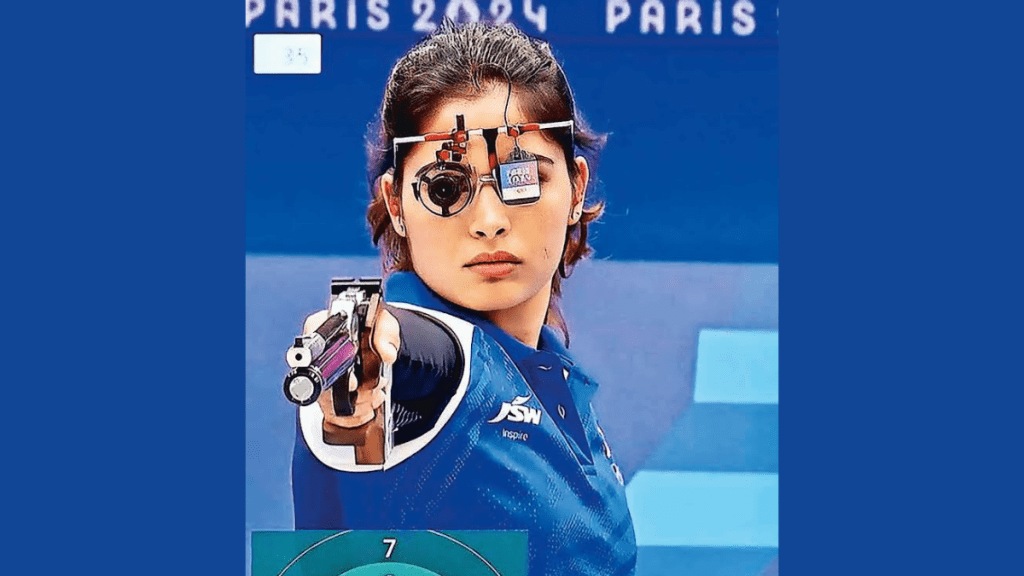With back-to-back bronze medals in two shooting events, Manu Bhaker emerged the door opener for the 29 Indian athletes competing for medals at the ongoing Paris 2024 Olympics. To celebrate her wins at the Women’s 10m Air Pistol and Mixed 10m Air Pistol (in partnership with Sarabjot Singh) events, a host of brands jostled on social media to share congratulatory posts, while brandishing the athlete’s image prominently. That move did not go down well with Bhaker’s manager IOS Sports & Entertainment, which promptly sent off legal notices to nearly two dozen brands.
While moment marketing is a common technique used by brands to piggyback on relevant events, fads and cultural moments to connect with consumers, marketers have often stumbled on the issue of keeping within the permissible limits of celebrity advertising. Indian advertising’s Bhaker moment might have drawn many eyeballs but failed that permissibility test.
First of all, legally speaking, these brands are on thin ice. Ranjan Negi, managing partner, Mettle Legal, says the Supreme Court of India has recognised the concept of ‘inviolate personality’ as part of the right to privacy under Article 21 of the Constitution, allowing individuals to control the commercial use of their identity. “Recent High Court cases have protected the names, likenesses, and personal attributes of Anil Kapoor, Jacky Shroff, and Amitabh Bachchan,” he pointed out.
That apart, unauthorised usage of a celebrity’s imagery can mislead consumers and violate the personal rights of celebrities, say branding experts. According to the Advertising Standards Council of India (ASCI), brands capitalising on Bhaker’s win represent a potential violation of Clause 1.3 of the ASCI Code on misleading advertisements. Manisha Kapoor, CEO & secretary general of ASCI, says, while there are no specific guidelines for moment marketing, the ASCI Code for Misleading Ads is applicable in this case.
“Respecting the rights of celebrities and having explicit permission or endorsement agreements should be the starting point for any effective marketing strategy,” she says.
So did brands end up jumping the gun in their enthusiasm? What is the best way to spin a moment marketing campaign without undermining the rights of the celebrity concerned?
Back to basics
Brands that jumped onto the bandwagon perhaps saw this as too good an opportunity to give it a miss. Olympics is one of the most widely watched sporting events in the world. A report by the Broadcast Audience Research Council showed that with 69 million viewers, India clocked 5.8 billion viewing minutes in the opening week of the Tokyo 2020 Olympics alone. The Paris Olympics is expected to bring in 3X viewership numbers, estimate media analysts.
For her part, Divya Dixit, business strategist and growth advisor, says stopping brands from celebrating this win might not be such a great idea. Think of it this way: A win like this goes a long way in creating awareness for both the brand and the sport, which is important in a country like India where non-cricketing sports are almost always sidelined, she adds.
And when done well, moment marketing can help brands reap rich dividends. Pinaki Dasgupta, professor of marketing, IMI New Delhi, admits that the lack of clear regulation and legal support can lead to opportunistic exploitation of personality brands in India, but done well, moment marketing can be lucrative.
Take Oreo’s exploits during Super Bowl XLVII. When there was a power outage for nearly 34 minutes at the stadium, Oreo grabbed the opportunity and tweeted, “Power Out! No Problem! You can still dunk in the dark”. The campaign gained immediate traction with more than 15,000 retweets and 20,000 Facebook likes.
“The lesson from this is, moment marketing has to be metaphorical and not overt; a win or a loss or a victory or an event or a moment must reciprocate the brand sentiment rather than echo the sentiment of the moment,” says Dasgupta.
In the end, good advertising demands honesty and fairness, and as ASCI’s Kapoor points out, using a celebrity’s image without consent fails to meet these basic requirements.
